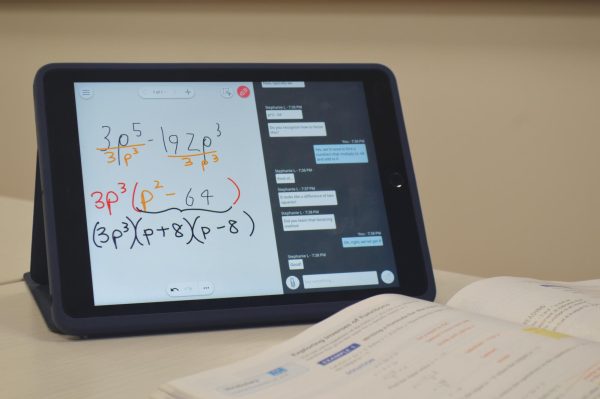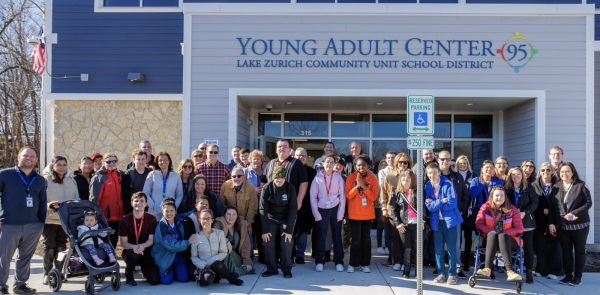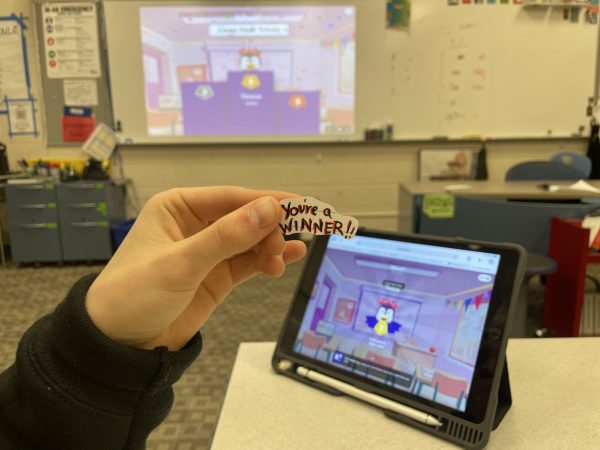Funding your future
How jobs affect college decision
Student last name omitted per source’s request
For many students, working a job can provide spending money for their social life, but for others, it may be necessary to help their family make ends meet or to save for college.
Xavier, senior, worked over the summer at Twin Orchard Country Club for 6 to 7 days a week, at least 6 hours a day, sometimes 10 to 12 hours a day.
“My parents don’t pay for any of my stuff, so if I want to go out to eat with my friends or if I want to buy pants or something like that I have to pay for it myself, so I am very conservative with my spending. I try not to buy a lot of stuff,” Xavier said. “When you are working for it, it’s a huge difference than when you’re getting it from your parents. When you want to buy something you kind of have to think how much it’s going to cost me, not just in money, but also how it going to cost you in time and what you are going to have to do to make up for it. Let’s say I bought something for a couple hundred of bucks over the summer, I saw it as “this is three to four days of work, is it really worth it?”’
One part of having a job for students is to save for college, according to a Bear Facts Survey of 347 students, 16.9% of students’ primary reason for having a job is to save for college.
For Xavier, another reason for having a job is to receive a possible caddy scholarship so his future college education will be at a much cheaper cost.
“I was working, and I had the scholarship in mind, and I was trying to make connections with people so I could be more likely to get the scholarship. If I get [the scholarship], the charity scholarship would pay for it, full ride housing and everything. If I don’t get it, my parents said they would pay for it, but I would pay them back once I got a job later on to make myself feel less guilty,” Xavier said.
In addition to scholarships, many students apply for financial aid. 55.1% of Lake Zurich students have or will apply for financial aid. This makes some college choices more realistic, Xavier said.
“Not going to college was my plan B. We looked at some schools that gives financial aid so now those are fairly realistic. Also Europe is very cheap, since I am a EU citizen so I can go there,” Xavier said. “Price is most important at this point.”
According to Carl Krause, college guidance counselor, 82% of all full-time undergraduate students receive some form of financial aid. While jobs may help in addition to financial aid, some may see it as counter active.
Roughly 78% percent of college students spend a portion of the year working, and 45 percent have jobs year-round, according to The Week magazine. An estimated 58 percent of freshmen depend on outside work. That makes sense: Tuition, room and board, and other costs can add up to more than $30,000 at public colleges and as much as $70,000 at private universities. But the financial aid formula dings students who earn more than $7,000 a year. For instance, a student who had already earned $7,000 for 2018 and tried to fit in another $3,000 in the summer could lose about $1,3000 in financial aid.
“I want to go to a good school that gives me a lot of money, but money is very important. I don’t want to leave college with that burden of loans hanging over my head that makes me decide that maybe I won’t go to my dream job, but I’ll go to a job that pays off my loans or something like that,” Xavier said. “I feel like if you have the loans hanging over your head, there is more stress to what you are doing. If you don’t have loans you have more freedom.”

Along with being Editor-in-Chief of the Bear Facts magazine, Chloe is involved with Yearbook, Student Leadership, Student Council, SNAP, and Interact....










